Month: April 2018
QUIPORT AWARDS 64 SCHOLARSHIPS TO STUDENTS IN NEIGHBORING PARISHES
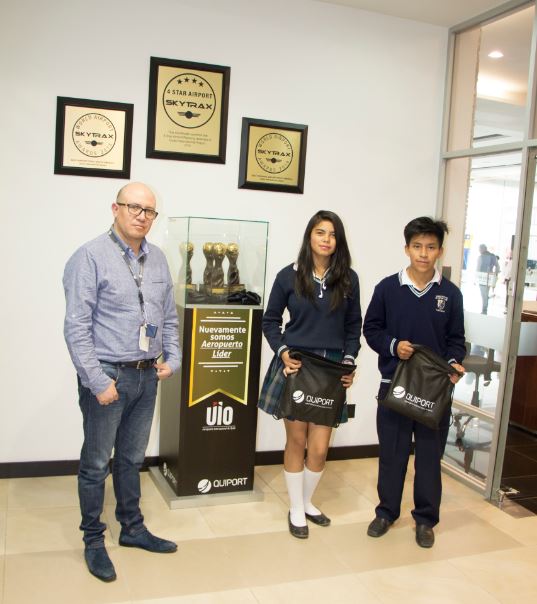
As in previous years, Corporación Quiport has completed its selection and disbursement process for the award of scholarships to students in schools near Mariscal Sucre International Airport. This year, students at 14 educational institutions in Puembo, Pifo, Tababela, Yaruquí, Checa and El Quinche have benefitted from the program.
Andrew O’Brian, President and CEO of Quiport, states “this work is not only gratifying, but is an essential part of our Corporate Social Responsibility Policy. Quiport has a keen interest in the improvement of communities within the airport’s area of influence and, particularly, in seeing that the most vulnerable members have all possible opportunities.”
Quiport’s scholarship program has been running for more than 10 years, providing financial assistance to students at local schools neighboring the airport. Quiport uses a series of parameters to select the recipients of scholarships, including level of vulnerability, the family’s economic situation and whether the student suffers from a serious illness.
On this occasion, Quiport awarded financial assistance to 64 students in neighboring parishes.
THE LATIN AMERICAN QUALITY INSTITUTE AWARDS PRIZE TO QUITO AIRPORT’S VIP LOUNGES
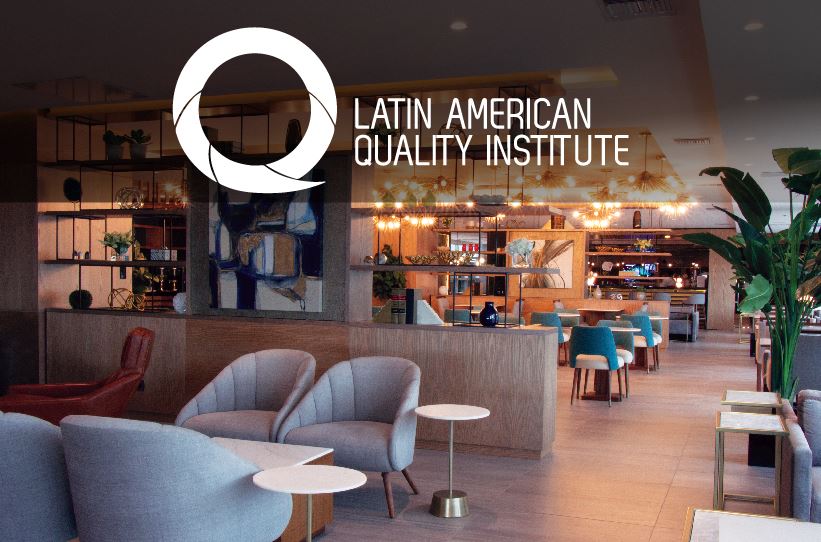
- The airport’s VIP Lounges received the Latin American Quality Awards 2017 Trophy.
- Additionally, representatives of Quiport received certificates for the quality of services offered at the VIP Lounges.

The VIP Lounges at Quito’s Mariscal Sucre Airport have once more been recognized by the Latin American Quality Institute (LAQI), who awarded a trophy in recognition of excellence in business management and the promotion of a culture of quality throughout Latin America. Additionally, LAQI recognized the quality of services and representatives of the commercial department of Quiport (the concessionaire of Quito’s airport service) with the following international certifications: Global Quality Certification, Quality Assurance Manager and Marketing & Branding Manager Leader.
To award these prizes that recognize and certify the total quality of products and services offered to passengers at the VIP Lounges, LAQI considered factors including customer service, innovation, quality of products and services and friendliness of staff.
The domestic and international VIP Lounges at Mariscal Sucre Quito Airport include areas for rest, gastronomic offering, business and entertainment to provide travelers with a variety of services devised for their comfort. The VIP Lounges add to the array of quality services offered at Quito’s Airport. In November 2017, the expanded and renovated International VIP Lounge was inaugurated, increasing the quality of service for its users.
The Latin American Quality Awards 2017 trophy is the highest recognition awarded by LAQI yearly, while the certifications issued by LAQI are sustained by 38 strategic alliances and are recognized in more than 100 countries, providing credibility in the global market.
Certifications and awards given by LAQI are based on criteria with high standards of quality and are developed by a team of specialists in each area. These recognitions are awarded with the aim to continue encouraging and motivating companies and entrepreneurs throughout Latin America to continue on the path to Total Quality.
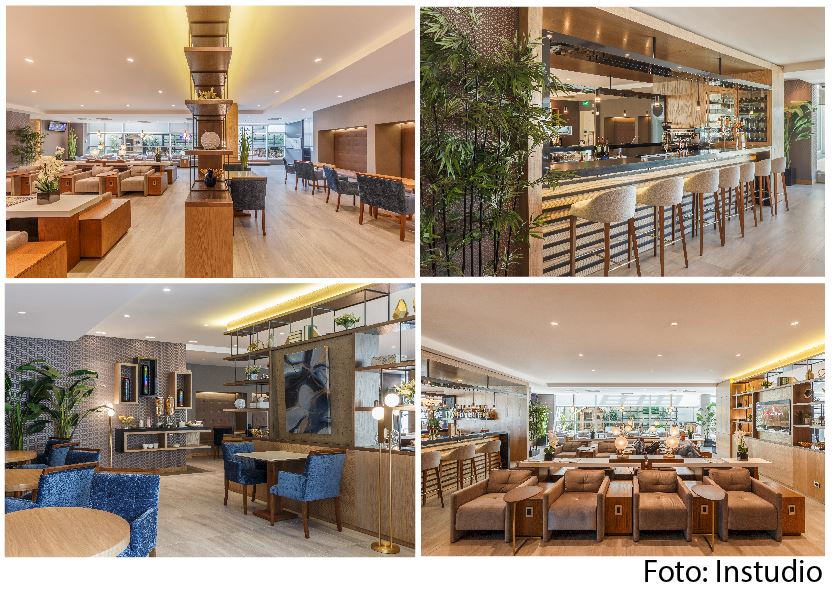
QUITO AND MEXICO CITY INCREASE THEIR AIR CONNECTIVITY
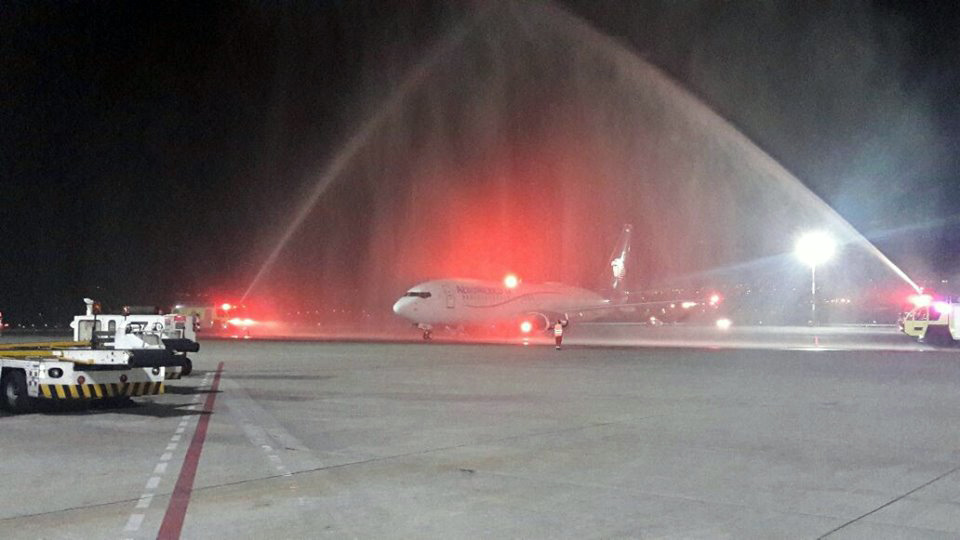
- Aeromexico, the Mexican flag carrier, increases its offer to 10 flights/week
As of April 13, Aeromexico operates a second flight with three new frequencies in the Quito – Mexico City route. This new operation will improve Quito’s connectivity not only with Mexican destinations but also with other points of commercial and tourist interest such as Los Angeles, San Francisco, New York, Las Vegas and Miami, also reducing connection times with Canadian and Asian destinations.
Ecuador shares many close links with Mexico and, therefore, air connectivity is a key element to strengthen both countries’ commercial, productive and tourist sectors whereby the operation of new frequencies, furthermore, strengthening their development. The arrival at the Mariscal Sucre Airport of the first flight operating in one of the new frequencies will complete the planning and implementation process undertaken several months ago in order to make possible the increase of frequencies and, undoubtedly, will mark the beginning of new opportunities for both countries.
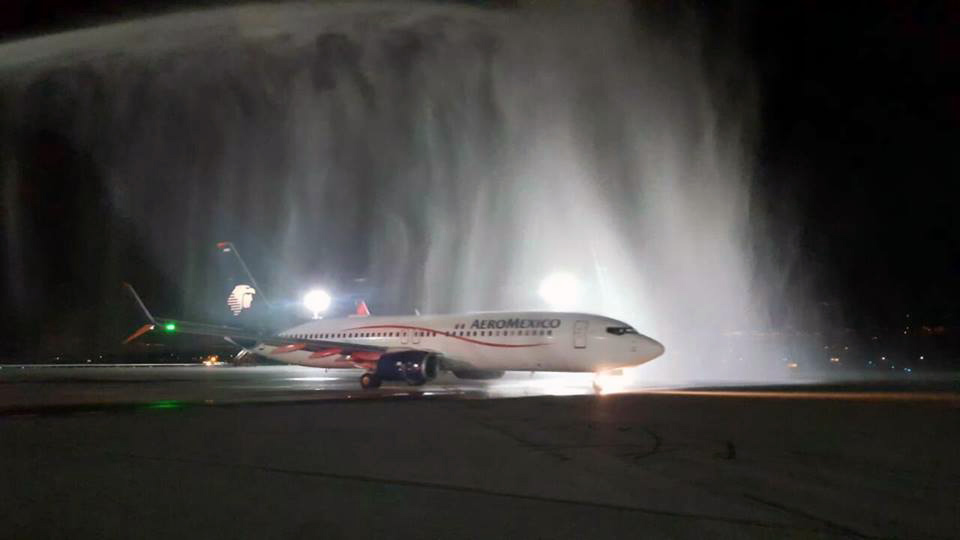
This new milestone is part of Quiport’s permanent commitment to offer its users more alternatives to satisfy their demands. The company, in unison with Aeromexico, the Municipality of Quito and the central government through its Tourism and Transport Ministries, has used every effort so that Quito and Mexico will be much closer to each other.
According to Andrew O’Brian, President of Corporación Quiport, “the experience of working with Aeromexico has been the best. It is a responsible and trustworthy airline with which we share our objectives of constant growth and innovation. We are very pleased with their decision to increase operations in Quito and we wish Aeromexico every success in the new frequencies.”
“With this further increase we will strengthen our presence in the market, as it will allow us to increase by 43% the offer of seats, thereby reflecting our efforts to provide the best product to our customers. In 2017 Aeromexico carried 20% more passengers than in 2016”, Arik De, Aeromexico’s Assistant Director for Strategy and Planning, emphasized.
The Quito airport operated by Quiport is a regional leader in airport services. From the beginning of its operations it committed its efforts to constantly improve its services and upgrade the quality of transportation in this country in keeping with global changes. More than 30 recognitions from the industry endorse our commitment that is upheld and strengthened by our looking for new service alternatives for its users.
AIRPORTS COUNCIL INTERNATIONAL SHARES WORK AGENDA WITH IATA
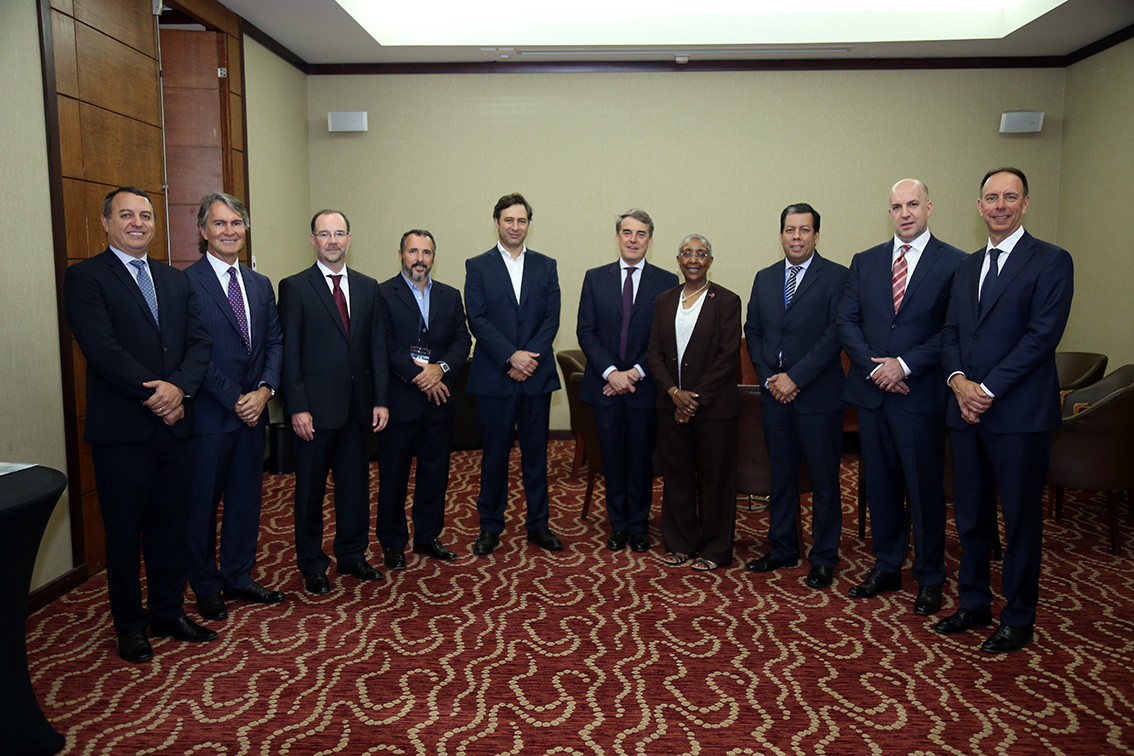
- The Airports Council International – Latin America & Caribbean (ACI-LAC) met for the first time this year and, within the framework of the 10th edition of the International Air Transport Association “Wings of Change” Aviation Forum, held a high-level meeting with IATA executives to discuss strategic issues that ACI-LAC and IATA share and that require mutual cooperation to promote the growth of air transport and thus facilitate the value of aviation between cities as a driver of economic and social development in Latin America and the Caribbean.
The Airports Council International – Latin America & Caribbean (ACI-LAC) met for the first time this year and, within the framework of the 10th edition of the International Air Transport Association “Wings of Change” Aviation Forum, held a high-level meeting with IATA executives to discuss strategic issues that ACI-LAC and IATA share and that require mutual cooperation to promote the growth of air transport and thus facilitate the value of aviation between cities as a driver of economic and social development in Latin America and the Caribbean.
The meeting was attended by Angela Gittens, Director General of ACI World; Alexandre de Juniac, CEO of IATA; Martín Eurnekián, Presidente of ACI-LAC and Vice Chair of ACI World; Peter Cerda, IATA VP for the Americas; Javier Martínez, Director General of ACI-LAC; Andrew O’Brian and Ezequiel Barrenechea, Vice Presidents of ACI-LAC; Luis Felipe de Oliveira, Executive Director of ALTA; Filipe Reiss and Oracio Márquez of IATA.
During the meeting, the main issues agreed upon in a memorandum of understanding signed last year in November among ACI-LAC, ALTA and IATA were discussed. The agreement provides for joint efforts to:
- Improve the operational safety of aviation to achieve the safety goals set by the Regional Aviation Safety Group – Pan America (RASG-PA);
- Implement safety and facilitation measures, including new technologies designed to simplify commercial procedures and transactional processes;
- Continue with efforts to improve airport infrastructure and air traffic management initiatives for secure, efficient and sustainable operations;
- Collaborate and exchange best practices on fuel supply and storage;
- Place commercial aviation in government agendas to highlight the value of aviation of a driver of economic and social development.
Martín Eurnekián highlighted the need to maintain an ongoing dialogue between the different organizations, regardless of issues concerning airport fees and concession models in respect of which there are different perspectives. He also reiterated ACI-LAC’s permanent commitment to seeking opportunities for collaboration among key players in the aviation industry. “The challenges posed by the projected growth in passenger and cargo traffic in the region over the next 20 years demand genuine efforts by airlines to ensure safe and sustainable development of air transport in the region,” said Eurnekián, President of ACI-LAC.
